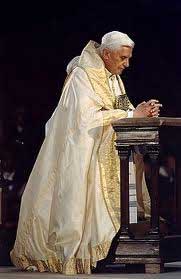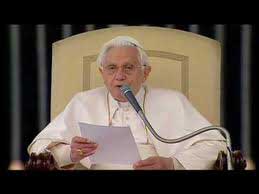Episode 6 Beginning to Pray: Â “Heaven in Faith” Â Day 3 Prayer 2 – “You have died and your life is hidden with Christ in God”
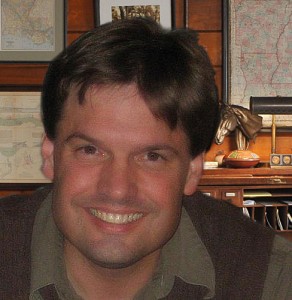
[powerpress]
Dr. Anthony Lilles is a Catholic husband and father of three teaching Spiritual Theology at St. John Vianney Theological Seminary. He  teaches spiritual theology and spiritual direction to transitional deacons, and the spiritual classics to the men who enter the Spirituality Year, a year of prayer in preparation for seminary formation.  He is the author of the “Beginning to Pray”  catholic blog spot.
From “Heaven in Faith: Day 3 Prayer 2” found in The Complete Works vol 1:
11. “You have died and your life is hidden with Christ in God” Â St. Paul comes to bring us a light to guide us on the pathway of the abyss. Â “You have died”! Â What does that mean but that the soul that aspires to live close to God “in the invincible fortress of holy recollection” must be “set apart, stripped, and withdrawn from all things” (in spirit). Â This soul “finds within itself a simple ascending movement of love to God, whatever creatures may do; it is invincible to things which” pass away, “for it transcends them, seeking God alone.”
For other episodes in the series visit the Discerning Hearts page for Dr. Anthony Lilles
We would like to offer heartfelt thanks to
Miriam Gutierrez for providing for us “the voice” of Blessed Elizabeth for this series
Tags: Anthony Lilles, blessed elizabeth of the trinity, carmelite, catholic, catholic podcast, catholic prayer, cathollc spirituality, heaven in faith, Spiritual Theology, St. John Vianney Theological Seminary
This entry was posted on Wednesday, February 15th, 2012 at 1:30 am
You can follow any responses to this entry through the RSS 2.0 feed.
Episode 5- The School of Prayer: Reflections on the teachings of Pope Benedict XVI –  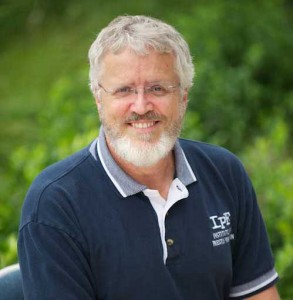 What is the authentic understanding of “intercession” in the context of prayer.  Moses speaks to God as friend.  The invisibility of God  puts deep questions in our hearts.  Unless we have the intimacy of relationship with God in our hearts, our fear will overwhelm our faith.  We also lose patience when waiting for God.  “Waiting” is a dangerous period for human beings; it is literally suffering for us.  The virtue of patience is the remedy.  “Waiting” causes us to run to other diversions…it happens in worship.  “Where are you”  “Are you real?” “Can I believe what is in the Word?” “Please help me.”  If we go deep into our hearts, the content of our waiting becomes the occasion for our intimacy.  But if we just feel the pain of waiting, we will go looking for lost gods.  It comes down to trust.  The role of our memory is so important. [powerpress] Deacon James Keating, PhD, the director of Theological Formation for the Institute for Priestly Formation, located at Creighton University, in Omaha. From  Pope Benedict’s 5 audience on prayer:
What is the authentic understanding of “intercession” in the context of prayer.  Moses speaks to God as friend.  The invisibility of God  puts deep questions in our hearts.  Unless we have the intimacy of relationship with God in our hearts, our fear will overwhelm our faith.  We also lose patience when waiting for God.  “Waiting” is a dangerous period for human beings; it is literally suffering for us.  The virtue of patience is the remedy.  “Waiting” causes us to run to other diversions…it happens in worship.  “Where are you”  “Are you real?” “Can I believe what is in the Word?” “Please help me.”  If we go deep into our hearts, the content of our waiting becomes the occasion for our intimacy.  But if we just feel the pain of waiting, we will go looking for lost gods.  It comes down to trust.  The role of our memory is so important. [powerpress] Deacon James Keating, PhD, the director of Theological Formation for the Institute for Priestly Formation, located at Creighton University, in Omaha. From  Pope Benedict’s 5 audience on prayer:
“Tired of following a path with a God who is invisible now that Moses the mediator has also gone, the people demand a tangible, palpable presence of the Lord and find an accessible god, within the reach of human beings, in Aaron’s molten metal calf. This is a constant temptation on the path of faith: avoiding the divine mystery by building a comprehensible god that corresponds to our own preconceptions and plansâ€.
 For more information on the “Institute of Priestly Formation†and for other material available by Deacon Keating, just click here
For more information on the “Institute of Priestly Formation†and for other material available by Deacon Keating, just click here 
Don’t forget to pickup a copy of “Communion with Christ†, it is one of the best audio sets on prayer…ever!
Check out Deacon Keating’s “Discerning Heart†page
Tags: catholic, catholic podcast, catholic prayer, cathollc spirituality, creighton university, institute for priestly formation, james keating, pope benedict, pope benedict xvi
This entry was posted on Monday, February 13th, 2012 at 10:58 am
You can follow any responses to this entry through the RSS 2.0 feed.
[powerpress]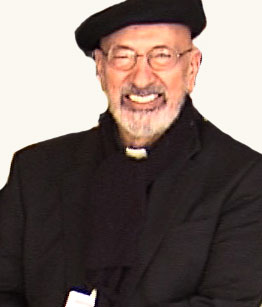 Prayer is assumed as something we know how to do, but do we? The Church has been constantly teaching her children throughout the ages. The Mass, of course, is our central act of prayer. Â But to truly deepen our prayer, even our worship in the Mass, we must appreciate who God is. God is a Trinity, He revealed Himself to us. He is Three Persons in One God. We experience and express their relationship when we pray “Glory be to the Father, Glory be to the Son,
Prayer is assumed as something we know how to do, but do we? The Church has been constantly teaching her children throughout the ages. The Mass, of course, is our central act of prayer. Â But to truly deepen our prayer, even our worship in the Mass, we must appreciate who God is. God is a Trinity, He revealed Himself to us. He is Three Persons in One God. We experience and express their relationship when we pray “Glory be to the Father, Glory be to the Son, 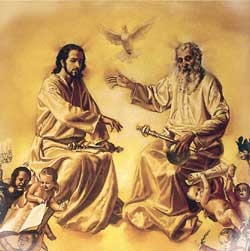 Glory be the Holy Spirit, as it was in the beginning, is now and ever shall be world without end”. When we pray “Glory be to the Father”, He really hears us…He is present, He is truly with you. What does that mean when we pray? It is a relationship. The same is true in relation to the Son and the Holy Spirit. Msgr. Esseff, in this first lesson on prayer, breaks this open in a very deep and important way…the importance of Trinity and presence. Msgr. Esseff also begins an introduction to the importance of the Liturgy of the Hours and the Psalms.
Glory be the Holy Spirit, as it was in the beginning, is now and ever shall be world without end”. When we pray “Glory be to the Father”, He really hears us…He is present, He is truly with you. What does that mean when we pray? It is a relationship. The same is true in relation to the Son and the Holy Spirit. Msgr. Esseff, in this first lesson on prayer, breaks this open in a very deep and important way…the importance of Trinity and presence. Msgr. Esseff also begins an introduction to the importance of the Liturgy of the Hours and the Psalms.
Be sure to visit Msgr. Esseff’s website: Â “Building A Kingdom of Love“
Tags: catholic, catholic podcast, catholic prayer, cathollc spirituality, John Esseff, Trinity
This entry was posted on Sunday, February 12th, 2012 at 8:40 pm
You can follow any responses to this entry through the RSS 2.0 feed.
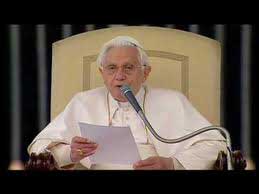
Vatican City, 8 February 2012 (VIS) – The prayer of Jesus at the moment of His death, as narrated by St. Mark and St. Matthew was the theme of Benedict XVI’s catechesis during his general audience, held this morning in the Paul VI Hall.
Yet, the Holy Father asked, “what is the meaning of Jesus’ prayer? The cry addressed to the Father: ‘my God, my God, why have you 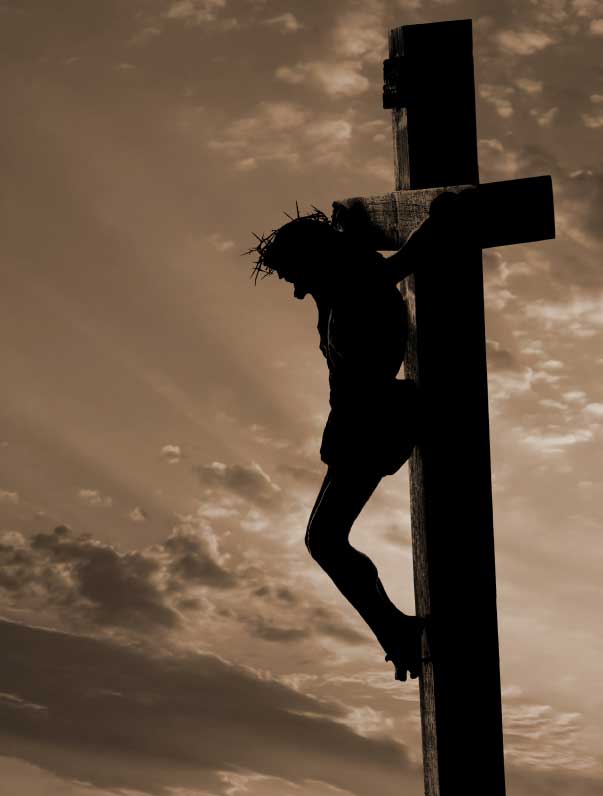 forsaken me?'” He explained that “the words Jesus addresses to the Father are the beginning of Psalm 22, in which the Psalmist expresses the tension between, on the one hand, being left alone and, on the other, the certain knowledge of God’s presence amongst His people. … The Psalmist speaks of a ‘cry’ to express all the suffering of his prayer before the apparently absent God. At moments of anguish prayer becomes a cry.
forsaken me?'” He explained that “the words Jesus addresses to the Father are the beginning of Psalm 22, in which the Psalmist expresses the tension between, on the one hand, being left alone and, on the other, the certain knowledge of God’s presence amongst His people. … The Psalmist speaks of a ‘cry’ to express all the suffering of his prayer before the apparently absent God. At moments of anguish prayer becomes a cry.
“This also happens in our own relationship with the Lord”, the Pope added. “In the face of difficult and painful situations, when it seems that God does not hear, we must not be afraid to entrust Him with the burden we are carrying in our hearts, we must not be afraid to cry out to Him in our suffering”.
“Jesus prays at the moment of ultimate rejection by man, at the moment of abandonment. However, He is aware that God the Father is present even at the instant in which He is experiencing the human drama of death. Yet nonetheless, a question arises in our hearts: how is it possible that such a powerful God does not intervene to save His Son from this terrible trial?”
The Holy Father explained that “it is important to understand that the prayer of Jesus is not the cry of a person who meets death with desperation, nor that of a person who knows he has been abandoned. At that moment Jesus appropriates Psalm 22, the Psalm of the suffering people of Israel, at that moment He takes upon Himself not only the suffering of His people, but also that of all men and women oppressed by evil. … And He takes all this to the heart of God in the certainty that His cry will be heard in the resurrection. … His is a suffering in communion with us and for us, it derives from love and carries within itself redemption and the victory of love.
“The people at the foot of Jesus’ cross were unable to understand, they thought His cry was a supplication to Elijah. … We likewise find ourselves, ever and anew, facing the ‘today’ of suffering, the silence of God – many times we say as much in our prayers – but we also find ourselves facing the ‘today’ of the Resurrection, of the response of God Who took our sufferings upon Himself, to carry them with us and give us the certain hope that they will be overcome”.
“In our prayers”, the Holy Father concluded, “let us bring God our daily crosses, in the certainty that He is present and listens to us. The cry of Jesus reminds us that in prayer we must cross the barrier of ‘self’ and our own problems, and open ourselves to the needs and sufferings of others. May the prayer of the dying Jesus on the cross teach us to pray with love for so many brothers and sisters who feel the burden of daily life, who are experiencing moments of difficulty, who suffer and hear no words of comfort, that they may feel the love of God Who never abandons us.
Tags: catholic, catholic podcast, catholic prayer, cathollc spirituality, pope benedict xvi, psalm 22
This entry was posted on Wednesday, February 8th, 2012 at 8:21 am
You can follow any responses to this entry through the RSS 2.0 feed.
Episode 4- The School of Prayer: Reflections on the teachings of Pope Benedict XVI –   Jacob wrestling with Angel.  The mystery of the name.  We have to let God ask us who we are or will you resist and remain isolated?  Our prayer is only going to be fruitful if we surrender ourselves to the question…who are you?  Like  Jacob, once we give over our name then God can begin to transfigure that name, or in other words, our persons to be more inline with His will, His love, His power.  Eventually, in prayer, we have to enter into the struggle…what is really going on in our souls, in our hearts and are our wrestling with God’s love.   We yield our identity to God’s love.
Jacob wrestling with Angel.  The mystery of the name.  We have to let God ask us who we are or will you resist and remain isolated?  Our prayer is only going to be fruitful if we surrender ourselves to the question…who are you?  Like  Jacob, once we give over our name then God can begin to transfigure that name, or in other words, our persons to be more inline with His will, His love, His power.  Eventually, in prayer, we have to enter into the struggle…what is really going on in our souls, in our hearts and are our wrestling with God’s love.   We yield our identity to God’s love.
The wounding of Jacob by the Angel. Â It is the symbol of the wound, the opening of the self, which symbolizes an entryway to vulnerability…God is deeply affecting us. Â God’s love, concern, and fascination with us is how He enters into our being and “wounds” us. Â If we could “be still” and allow Him to love us, He becomes victorious within us.
The name we yield to God is our heart…the core of our being.  At Baptism, we give over our name, so we give the power over to God over us.  How the “wrestling occurs” and if we stay in it long enough God “wounds” us, into His hands we commend our “spirits”.  How does Jesus transform even this event?
[powerpress]
Deacon James Keating, PhD, the director of Theological Formation for the Institute for Priestly Formation, located at Creighton University, in Omaha.
From  Pope Benedict’s 4 audience on prayer:
Dear brothers and sisters, our entire lives are like this long night of struggle and prayer, spent in desiring and asking for God’s blessing, which cannot be grabbed or won through our own strength but must be received with humility from him as a gratuitous gift that ultimately allows us to recognize the Lord’s face. And when this happens, our entire reality changes; we receive a new name and God’s blessing. And, what is more: Jacob, who receives a new name, and becomes Israel, also gives a new name to the place where he wrestled with God, where he prayed; he renames it Penuel, which means: “The Face of Godâ€. With this name he recognizes that this place is filled with the Lord’s presence, making that land sacred and thus leaving a memorial of that mysterious encounter with God. Whoever allows himself to be blessed by God, who abandons himself to God, who permits himself to be transformed by God, renders a blessing to the world. May the Lord help us to fight the good fight of the faith (cf. 1 Tim 6:12; 2 Tim 4:7) and to ask, in prayer, for his blessing, that he may renew us in the expectation of beholding his Face. Thank you.
For more information on the “Institute of Priestly Formation†and for other material available by Deacon Keating, just click here
Don’t forget to pickup a copy of “Communion with Christ†, it is one of the best audio sets on prayer…ever!
Check out Deacon Keating’s “Discerning Heart†page
Tags: catholic, catholic podcast, catholic prayer, cathollc spirituality, jacob, james keating, pope benedict, pope benedict xvi, prayer
This entry was posted on Sunday, February 5th, 2012 at 2:12 pm
You can follow any responses to this entry through the RSS 2.0 feed.
Episode 5 Beginning to Pray: Â “Heaven in Faith” Â Day 3 Prayer 1 – “We will come to him and make our home in him“

[powerpress]
Dr. Anthony Lilles is a Catholic husband and father of three teaching Spiritual Theology at St. John Vianney Theological Seminary. He  teaches spiritual theology and spiritual direction to transitional deacons, and the spiritual classics to the men who enter the Spirituality Year, a year of prayer in preparation for seminary formation.  He is the author of the “Beginning to Pray”  catholic blog spot.
From “Heaven in Faith: Day 3 Prayer 1” found in The Complete Works vol 1:
8. … “Each incident, each event, each suffering, as well as each joy, is a sacrament which gives God to it; so it no longer makes a distinction between these things; Â it surmounts them, goes beyond them to rest in its Master, above all things. Â It “exalts” Him high on the “mountain of its heart,” yes, “higher than His gifts, His consolation, higher than the sweetness that descends from Him.” “The property of love is never to seek self, to keep back nothing, but to give everything to the one it loves.” Â “Blessed the soul that loves” in truth; “the Lord has become its captive through love”!
For other episodes in the series visit the Discerning Hearts page for Dr. Anthony Lilles
We would like to offer heartfelt thanks to
Miriam Gutierrez for providing for us “the voice” of Blessed Elizabeth for this series
Tags: blessed elizabeth of the trinity, carmelite, catholic, catholic podcast, catholic prayer, cathollc spirituality, heaven in faith
This entry was posted on Sunday, February 5th, 2012 at 9:48 am
You can follow any responses to this entry through the RSS 2.0 feed.
[powerpress]
Msgr. Esseff reflects on Matthew chap 18 v 21-35.  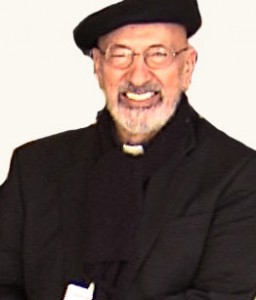 He shares the stories of a woman named Immaculee from Rwanda and young girl named Maria from Lebanon and the damage done by the hatred which is manifested in the world.  We have a capacity for communion…24 hours every day, 7 days a week.  How does that look in the
He shares the stories of a woman named Immaculee from Rwanda and young girl named Maria from Lebanon and the damage done by the hatred which is manifested in the world.  We have a capacity for communion…24 hours every day, 7 days a week.  How does that look in the  relationship found in marriage?  From childhood, there are deep wounds we carry from our parents…from siblings…or from others. What can cause those wounds?  The bitterness and resentment that we carry…the damage it does to us.  What is the remedy?  The joy of forgiveness…and forgetting.  Msgr. Esseff shares a poignant story of a man named John, and how he came to forgive what many would find “unforgivable”.
relationship found in marriage? Â From childhood, there are deep wounds we carry from our parents…from siblings…or from others. What can cause those wounds? Â The bitterness and resentment that we carry…the damage it does to us. Â What is the remedy? Â The joy of forgiveness…and forgetting. Â Msgr. Esseff shares a poignant story of a man named John, and how he came to forgive what many would find “unforgivable”.
This is the prayer mentioned by Msgr. Esseff in the talk...click here
Be sure to visit Msgr. Esseff’s website….”Building A Kingdom of Love”
Tags: catholic, catholic podcast, catholic prayer, cathollc spirituality, forgiveness, msgr. john esseff, reconciliation, unforgiveness
This entry was posted on Saturday, February 4th, 2012 at 3:49 pm
You can follow any responses to this entry through the RSS 2.0 feed.
VATICAN CITY, 1 FEB 2012 (VIS) – This morning in the Paul VI Hall the Holy Father received thousands of pilgrims from around the world in his weekly general audience. As part of a series of catecheses dedicated to the prayers pronounced by Christ, he focused his remarks on Jesus’ prayer in the Garden of Gethsemane.
Mark the Evangelist narrates how, following the Last Supper, Jesus went to the Mount of Olives and readied Himself for personal prayer. “But this time”, the Pope said, “something new occurred; it seemed that He did not want to remain alone. Many times in the past Jesus had moved away from the crowds, even from His own disciples. … However, in Gethsemane he invited Peter, James and John to stay close by; the same disciples who had accompanied Him during the Transfiguration.
“The proximity of these three during the prayer at Gethsemane is significant”, Benedict XVI added. It represents “a request for solidarity at the moment in which He felt the approach of death. Above all it was a closeness in prayer, an expression of unity with Him at the moment in which He was preparing to accomplish the Father’s will to the end, an invitation to all disciples to follow Him on the path of the Cross”.
Jesus’ words to the three disciples – “I am deeply grieved, even to death; remain here and keep awake” – show that He was feeling “fear and anguish at that ‘Hour’, experiencing the ultimate profound solitude as God’s plan was being accomplished. Jesus fear and anguish comprehend all the horror that man feels at the prospect of his own death, its inexorable certainty and the perception of the burden of evil which affects our lives”.
Having invited His disciples to keep awake, Jesus moved away from them. Referring to the Gospel of St. Mark, the Pope noted that Jesus “threw Himself to the ground: a position for prayer which expresses obedience to the Father’s will, an abandonment of self with complete trust in Him”. Jesus then asks the Father that, if possible, the hour might pass from Him. “This is not just the fear and anguish of man in the face of death”, the Holy Father explained, “but the distress of the Son of God Who sees the terrible accumulation of evil He must take upon Himself, in order to overcome it and deprive it of power”.
In this context, Benedict XVI invited the faithful to pray to God, placing before Him “our fatigue, the suffering of certain situations and of certain days, our daily struggle to follow Him and to be Christians, and the burden of evil we see within and around us, that He may give us hope, make us aware of His closeness and give us a little light on life’s journey”.
Returning then to Jesus’ prayer, the Pope focused on “three revealing passages” in Christ’s words: “Abba, Father, for you all things are possible; remove this cup from me; yet, not what I want but what you want”. Firstly, Benedict XVI said, the Aramaic word “Abba” is used by children to address their fathers, “therefore it express Jesus relationship with God the
Father, a relationship of tenderness, affection and trust”. Secondly, Jesus’ words contain an acknowledgment of the Father’s omnipotence “introducing a request in which, once again, we see the drama of Jesus’ human will in the face of death and evil. … Yet the third expression … is the decisive one, in which the human will adheres fully to the divine will. … Jesus tells us that only by conforming their will to the divine will can human beings achieve their true stature and become ‘divine’. … This is what Jesus does in Gethsemane. By transferring human will to the divine will the true man is born and we are redeemed”.
When we pray the Our Father “we ask the Lord that ‘your will be done, on earth as it is in heaven’. In other words, we recognise that God has a will for us and with us, that God has a will for our lives and, each day, this must increasingly become the reference point for our desires and our existence. We also recognise that … ‘earth’ becomes ‘heaven’ – the place where love, goodness, truth and divine beauty are present – only if the will of God is done”.
In our prayers “we must learn to have greater trust in Divine Providence, to ask God for the strength to abandon our own selves in order to renew our ‘yes’, to repeat to Him ‘your will be done’, to conform our will to His. This is a prayer we must repeat every day, because it is not always easy to entrust oneself to the will of God”.
The Gospel says that the disciples were unable to remain awake for Christ, and Pope Benedict concluded his catechesis by saying: “Let us ask the Lord for the power to keep awake for Him in prayer, to follow the will of God every day even if He speaks of the Cross, to live in ever increasing intimacy with the Lord and bring a little of God’s ‘heaven’ to this ‘earth'”.
Following the catechesis the Holy Father delivered greetings in a number of languages to the pilgrims filling the Paul VI Hall. They included a group of British military chaplains, faithful from Hong Kong and South America, bishops friends of the Sant’Egidio Community from Europe, Asia and Africa, as well as young people and the sick.
AG/ VIS 20120201 (940)
Tags: benedict xvi, catholic, catholic podcast, catholic prayer, cathollc spirituality, pope benedict, pope benedict xvi, prayer
This entry was posted on Saturday, February 4th, 2012 at 12:55 am
You can follow any responses to this entry through the RSS 2.0 feed.
Episode 3 The Daily Prayer of Discernment: The Ignatian Wisdom of the Examen Prayer with Fr. Timothy Gallagher.
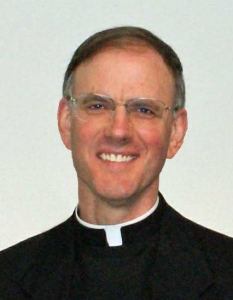 Â The conversation continues on the subject of the first step in the Examen – GRATITUDE. Â Why? Â Because first, above all things, God is love. Â So at the start of the prayer, we should recall the gift of love God has blessed us with that day and give Him thanks and praise….and be concrete. Â Fr. Gallagher offers examples of what that could look like. Â Then the conversation begins on the next step – PETITION. Â Asking God to show you what see clearly the spiritual realities of that day. Â
 The conversation continues on the subject of the first step in the Examen – GRATITUDE.  Why?  Because first, above all things, God is love.  So at the start of the prayer, we should recall the gift of love God has blessed us with that day and give Him thanks and praise….and be concrete.  Fr. Gallagher offers examples of what that could look like.  Then the conversation begins on the next step – PETITION.  Asking God to show you what see clearly the spiritual realities of that day. Â
[powerpress]
As outlined from the Spiritual Exercises of St. Ignatius of Loyola
(translated from the autograph by Fr. E. Mullan, S.J. Â 1909Â in the public domain)
METHOD FOR MAKING THE GENERAL EXAMEN
It contains in it five Points.First Point. The first Point is to give thanks to God our Lord for the benefits received.
Second Point. The second, to ask grace to know our sins and cast them out.
Third Point. The third, to ask account of our soul from the hour that we rose up to the present Examen, hour by hour, or period by period: and first as to thoughts, and then as to words, and then as to acts, in the same order as was mentioned in the Particular Examen.
Fourth Point. The fourth, to ask pardon of God our Lord for the faults.
Fifth Point. The fifth, to purpose amendment with His grace.OUR FATHER.
Father Timothy M. Gallagher, O.M.V., was ordained in 1979 as a member of the Oblates of the Virgin Mary, a religious community dedicated to retreats and spiritual formation according to the Spiritual Exercises of St. Ignatius. Â Fr. Gallagher is featured on the EWTN series “Living the Discerning Life: Â The Spiritual Teachings of St. Ignatius of Loyola”. Â For more information on books and audio available for purchase from Fr. Timothy Gallagher check out his website: www.frtimothygallagher.org
For the other episodes in this series check out
Fr. Timothy Gallagher’s “Discerning Hearts†page
Tags: catholic, catholic podcast, catholic prayer, cathollc spirituality, Examen, Father Timothy M. Gallagher, Timothy Gallagher
This entry was posted on Thursday, February 2nd, 2012 at 7:48 am
You can follow any responses to this entry through the RSS 2.0 feed.
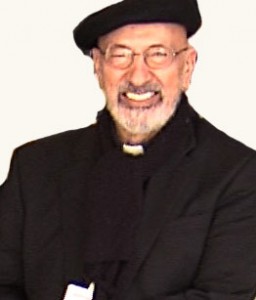 In January 2012, Msgr. Esseff conducted a weekend retreat for the Deacons and Deacon-Candidates and their wives of the Diocese of Fargo.
In January 2012, Msgr. Esseff conducted a weekend retreat for the Deacons and Deacon-Candidates and their wives of the Diocese of Fargo.
[powerpress]
The subject is SINFULNESS and the Sacrament of Reconciliation.  The crucifixion and death of Jesus and what Jesus “sees” from the Cross. We will not grow in the Divine life given to us in Baptism if we do not become fully aware of our sinfulness in direct relation to our blessedness.  The Devil is aware of  Christ in us; he hates the beauty of that union. The Enemy’s purpose is to destroy that relationship.  Why would we sin and endanger our union with Christ?  Sin is not just breaking a commandment, it is the destruction of the Divine life in us.  Sin is a 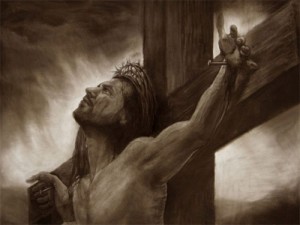 mystery; it is a darkness.  Our souls are a battleground…between the forces of light and the forces of darkness, the forces of love and the forces of hatred…a complete head on crash in every soul.
mystery; it is a darkness.  Our souls are a battleground…between the forces of light and the forces of darkness, the forces of love and the forces of hatred…a complete head on crash in every soul.
Msgr. Esseff then instructs on the importance of enlisting the aid of the Holy Spirit to truly prepare us for the Sacrament of Reconciliation.  It’s only through the aid of the Holy Spirit can God reveal to us what truly separates us from the  Father.  He reveals to us our “core wound”…the tendency in our behavior that causes us to sin.  Often we only pay attention to the symptoms of the wound, we need the Holy Spirit to show us the cause.  The deeper we go into our sinfulness the deeper the experience of the Divine Mercy.
Be sure to visit Msgr. Esseff’s website “Building a Kingdom of Love”
Tags: catholic, catholic podcast, catholic prayer, cathollc spirituality
This entry was posted on Wednesday, February 1st, 2012 at 8:58 am
You can follow any responses to this entry through the RSS 2.0 feed.
Episode 4 Beginning to Pray: Â “Heaven in Faith” Â Day 2 Prayer 2 – “Hurry and Come Down”

[powerpress]
Dr. Anthony Lilles is a Catholic husband and father of three teaching Spiritual Theology at St. John Vianney Theological Seminary. He  teaches spiritual theology and spiritual direction to transitional deacons, and the spiritual classics to the men who enter the Spirituality Year, a year of prayer in preparation for seminary formation.  He is the author of the “Beginning to Pray”  catholic blog spot.
From “Heaven in Faith: Day 2 Prayer 2” found in The Complete Works vol 1:
8. “As long as our will has fancies that are foreign to divine union, whims that are now yes, now no, we are like children: Â we do not advance with giant steps in love for fire has not yet burnt up all the alloy; the gold is not pure; we are still seeking ourselves; God has not consumed” all our hostility to Him. Â But when the boiling cauldron has consumed “every imperfect love, every imperfect sorrow, every imperfect fear,” “then love is perfect and the golden ring of our alliance is larger than Heaven and earth. Â The is the secret cellar in which love places his elect,” this “love leads us by ways and paths known to him alone and he leads us with no turning back, for we will not retrace our steps.”
For other episodes in the series visit the Discerning Hearts page for Dr. Anthony Lilles
We would like to offer heartfelt thanks to
Miriam Gutierrez for providing for us “the voice” of Blessed Elizabeth for this series
Tags: Anthony Lilles, blessed elizabeth of the trinity, carmelite, catholic, catholic podcast, catholic prayer, cathollc spirituality, heaven in faith, Spiritual Theology, St. John Vianney Theological Seminary
This entry was posted on Tuesday, January 31st, 2012 at 7:15 am
You can follow any responses to this entry through the RSS 2.0 feed.
 In January 2012, Msgr. Esseff conducted a weekend retreat for the Deacons and Deacon-Candidates and their wives of the Diocese of Fargo.
In January 2012, Msgr. Esseff conducted a weekend retreat for the Deacons and Deacon-Candidates and their wives of the Diocese of Fargo.
[powerpress]
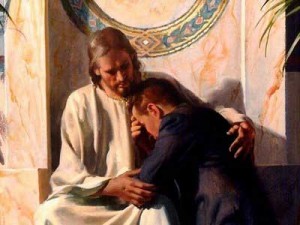 The subject is GRACE and the life of Jesus we receive in Baptism.  From Ephesians Chap 4 v 7 -16, Msgr. Esseff discusses what he calls “that most magnificent passage” which transforms us.  What made the transformation occur?  What is Original Sin? He reflects on the fall of our first parents and the broken relationship with God, and God’s gift of the Son.  The importance of the Blessed Virgin Mary…the first person to receive the revelation of the Trinity.  The tremendous moment of PENTECOST.  What is Sanctifying Grace?  What does it mean to have Jesus within us and what are we called to do?  How can we forgive, especially the deepest wounds?  Being like Jesus, we depend completely on the Father.  The lie of the “I can do anything” attitude.  The beauty of Galatians 2:20.  Ask God to help you discover your true self in Him.
The subject is GRACE and the life of Jesus we receive in Baptism.  From Ephesians Chap 4 v 7 -16, Msgr. Esseff discusses what he calls “that most magnificent passage” which transforms us.  What made the transformation occur?  What is Original Sin? He reflects on the fall of our first parents and the broken relationship with God, and God’s gift of the Son.  The importance of the Blessed Virgin Mary…the first person to receive the revelation of the Trinity.  The tremendous moment of PENTECOST.  What is Sanctifying Grace?  What does it mean to have Jesus within us and what are we called to do?  How can we forgive, especially the deepest wounds?  Being like Jesus, we depend completely on the Father.  The lie of the “I can do anything” attitude.  The beauty of Galatians 2:20.  Ask God to help you discover your true self in Him.
Be sure to visit Msgr. Esseff’s website “Building a Kingdom of Love”
Tags: catholic, catholic podcast, catholic prayer, cathollc spirituality, Esseff, John Esseff, msgr. john esseff, the Life of Jesus
This entry was posted on Tuesday, January 31st, 2012 at 12:04 am
You can follow any responses to this entry through the RSS 2.0 feed.
Episode 3- The School of Prayer: Reflections on the teachings of Pope Benedict XVI –   Abraham the great Patriarch who prays in intercession for Sodom and Gomorrah.  The mystery of intercessory prayer and God’s great mercy.  When we persist in prayer, like Abraham, the more we come to know God and trust in His love for us.  How sin corrupts our capacity to receive God’s movement of protection and love.  How the sacrifice of Christ opens the door to the mystery.  If we can learn how to pray, then we learn how to be loved.  How do we pray for others?
Abraham the great Patriarch who prays in intercession for Sodom and Gomorrah.  The mystery of intercessory prayer and God’s great mercy.  When we persist in prayer, like Abraham, the more we come to know God and trust in His love for us.  How sin corrupts our capacity to receive God’s movement of protection and love.  How the sacrifice of Christ opens the door to the mystery.  If we can learn how to pray, then we learn how to be loved.  How do we pray for others?
[powerpress]
Deacon James Keating, PhD, the director of Theological Formation for the Institute for Priestly Formation, located at Creighton University, in Omaha.
From  Pope Benedict’s 3 audience on prayer:
This is the power of prayer. For through intercession, the prayer to God for the salvation of others, the desire for salvation which God nourishes for sinful man is demonstrated and expressed. Evil, in fact, cannot be accepted, it must be identified and destroyed through punishment: The destruction of Sodom had exactly this function.
For more information on the “Institute of Priestly Formation†and for other material available by Deacon Keating, just click here
Don’t forget to pickup a copy of “Communion with Christ†, it is one of the best audio sets on prayer…ever!
Check out Deacon Keating’s “Discerning Heart†page
Tags: catholic, catholic podcast, catholic prayer, cathollc spirituality, james keating, pope benedict, pope benedict xvi
This entry was posted on Monday, January 30th, 2012 at 8:47 am
You can follow any responses to this entry through the RSS 2.0 feed.
 In January 2012, Msgr. Esseff conducted a weekend retreat for the Deacons and Deacon-Candidates and their wives of the Diocese of Fargo.
In January 2012, Msgr. Esseff conducted a weekend retreat for the Deacons and Deacon-Candidates and their wives of the Diocese of Fargo.
[powerpress]
The subject is PRAYER.  From Luke Chap 11 v 1-13, Msgr. Esseff discusses how little we know how to pray and how to receive.  He reflects on the Blessed Virgin Mary’s teaching to St. Catherine Laboure about prayer.  Then he offers the proper movement of prayer:
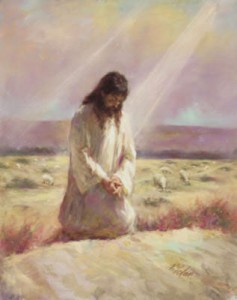
1. Â “Be there with Him and for Him”
2. Â “You have to want Him” Â Intensify the desire of relationship with God.
3. Â “Listen to Him”
- A – Acknowledge (What’s going on in your heart)
- R – Relay that to God
(Tell God – Father, Son and the Holy Spirit
and the Blessed Virgin Mary – about that experience) - R – Receive (What is God going to tell me about what I told Him)
- R – Respond
4. Â “Let Him” Â (Surrender to God)
What happens when we encounter the Holy Eucharist
What happens when we encounter the Living Word of God
Be sure to visit Msgr. Esseff’s website “Building a Kingdom of Love”
Tags: catholic, catholic podcast, catholic prayer, cathollc spirituality, Esseff, John Esseff, msgr. john esseff, prayer
This entry was posted on Sunday, January 29th, 2012 at 5:09 pm
You can follow any responses to this entry through the RSS 2.0 feed.
In January 2012, Msgr. Esseff conducted a weekend retreat for the Deacons and Deacon-Candidates and  their wives of  the Diocese of Fargo.
their wives of  the Diocese of Fargo.
[powerpress]
 On the evening of the start of the retreat, Msgr. Esseff gave a talk to prepare the hearts and minds of the participants. He explains the importance and value of SILENCE and listening to God. We may be doing too much talking to God and not enough listening. He provides the structure of the hours of prepare and scripture to reflect on and how to pray for the reception of a particular grace.
On the evening of the start of the retreat, Msgr. Esseff gave a talk to prepare the hearts and minds of the participants. He explains the importance and value of SILENCE and listening to God. We may be doing too much talking to God and not enough listening. He provides the structure of the hours of prepare and scripture to reflect on and how to pray for the reception of a particular grace.
Msgr. Esseff offers Ephesians 3:14-20, in particular, for reflection. He will later in the talk, give specific scripture for reflection for the hours of prayer. Â He discusses our specific calling…from baptism to marriage, the diaconate…what is our identity as Christian.
Be sure to visit Msgr. Esseff’s website “Building A Kingdom of Love”
Tags: catholic, catholic podcast, catholic prayer, cathollc spirituality, deacons, John Esseff, marriage, Msgr, msgr. john esseff, retreat
This entry was posted on Saturday, January 28th, 2012 at 4:22 pm
You can follow any responses to this entry through the RSS 2.0 feed.


